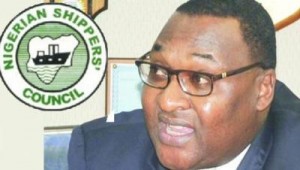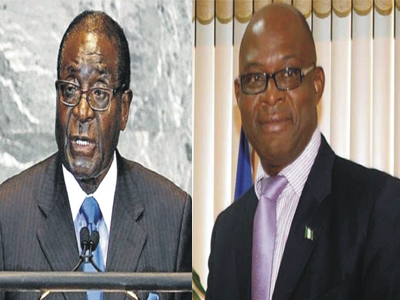PERISCOPE
Challenges Facing Shippers’ Council As Port Economic Regulator

The Nigerian Shippers Council’s regime as the port economic regulator is tipped to have brought about a new vigour and confidence to many stakeholders in the maritime industry (except you are asking some of the aggrieved terminal operators).
The Council’s status can be referred to as an interim port economic regulator as its full status will begin when it transforms into the National Transport Commission (NTC) after the NTC bill is signed into law.
According to the NTC bill, the Commission has a broad mandate which includes setting-up port charges, ensuring healthy competition amongst key industry players, ensuring standards for best practices, settling disputes between stakeholders (i.e consumers of maritime services and the service providers), general enlightenment of stakeholders on their various roles, advancing fair trade practices, etc.
However, the Council is already playing most of these roles albeit with its fair share of challenges. This report brings you the assessment of Nigerian Shippers Council as the economic regulator of the ports as well as the teething challenges facing the Council.
According to a maritime analyst, Mr. Galtima Liman, one of the major problems facing the Council was lack of funds to efficiently carry out its mandate as economic regulator of the ports.
Galtima said that the obligations of the Council significantly increased when it became the port economic regulator but the revenue accrued to Council has not justifiably increased to match the new responsibilities of the Council.
“The Council’s budgetary allocation has not been sufficiently upgraded to suit its expanded mandate. Hence the major challenge facing the Council hasn’t been the lack of capacity but the fact that the government has not expanded the Council’s budget to match its responsibilities”
He also added that the Council has found it difficult to regulate other sister parastatals such as the Nigerian Ports Authority (NPA).
“It has also been a challenge for the Shippers’ Council to regulate its sister parastatals that are wealthy, such as the NPA. Hence, this has led to the call for synergy and co-operation between these government institutions” he said.
According to Galtima, in spite of these challenges the Council has made significant efforts to engage and enlighten stakeholders on the recent developments in the shipping world and also addressed some of the complaints raised by the shippers.
Meanwhile, the Chairman of the National Ports Consultative Council, Otunba Kunle Folarin toldMMS Plusthat the Nigerian Shippers Council had performed tremendously as an interim port economic regulator.
According to Otunba Folarin, “the Council has made giant strides in the areas of mediating between the provider of services and the consumer of these services, the areas of checking the appropriateness of charges. They have also done wide and elaborate media campaigns, seminars and workshops to enlighten the consumers as well as the service providers in the maritime industry”
However, Otunba stressed that the Shippers Council needs to get the legal backing to enable it become a permanent regulator.
“There is still some encumbrance with the Shippers Council in the discharge of their duties as port economic regulator because some service providers are yet to see the Council as an authority that has the legal backing to play the role of the port economic regulator.
Once the Council gets to have the full status, it doesn’t only give them the legal backing to carry out their operations but it also increases their platform to be able to discharge their duties formidably to enhance the port industry and establish what is known globally as fair trade practices” He said.
Responding to an allegation that the Council also facing challenges with regulating a sister agency, ‘Nigerian Ports Authority’, Otunba said that the port economic regulatory roles of Shippers’ Council doesn’t affect the NPA in any way.
He stated that the NPA Act of 1999 as amended in 2004; specifically mandated the authority to be the technical regulator in-charge of harbor services and regulate the port environment.
“While the Shippers Council is the economic regulator, NPA is the landlord and technical regulator. NPA is to check pollution, do the dredging, and set standards for pilotage and towage services. Shippers Council doesn’t do these; its functions are different” Otunba added.
While the factional President of National Council of Managing Directors of Licensed Customs Agents (NCMDLCA), Mr. Lucky Amiwero agreed that the Shippers Council has done a lot to make the maritime industry and the nation’s economy fair better, he added that the prolonged court case between the Council and terminal operators was reducing the pace of the Council.
Amiwero tagged the battle as unfair as he pointed out that the terminal operators have the money to continue to drag the issue in court while increasing their terminal charges arbitrarily at the same time.
“Nigerian ports have been bedeviled in terms of high cost and this isn’t the fault of the Shippers Council but the lapses of the government and those who concessioned the ports because the Council’s appointment as economic regulator was late.
Shippers Council is in court over critical issues such as the arbitrary charges of the terminal operators. Terminal operators have the money and the Shippers Council doesn’t although they are a government agency. What can the Shippers Council do? The matter between them and the operators continues to drag in court while these terminal operators continue to increase their charges. This is one of the factors currently limiting the activities of the Council.” Amiwero said.
By Kenneth Jukpor





